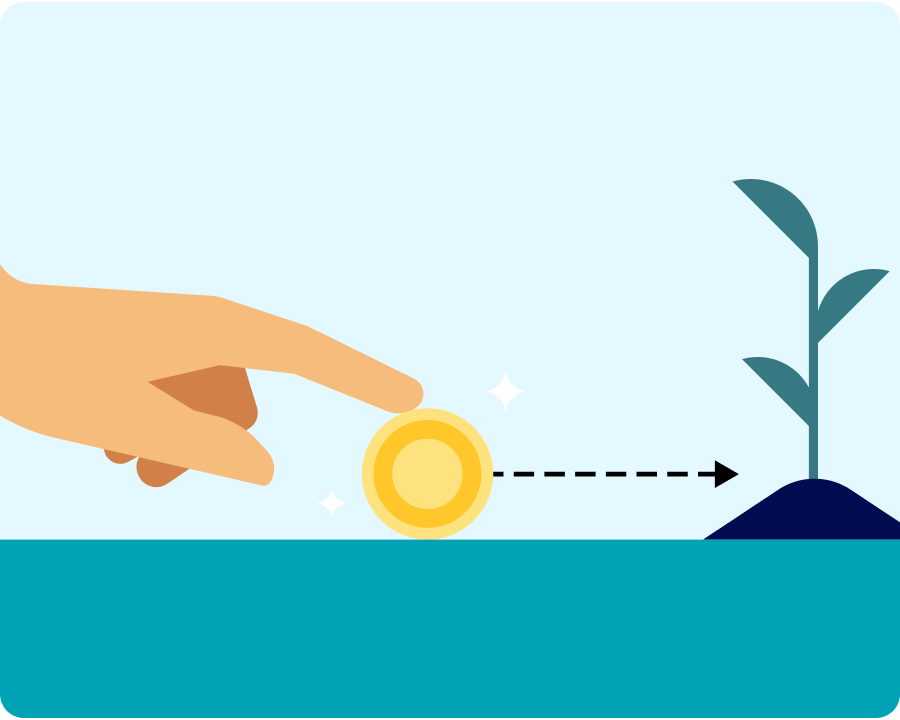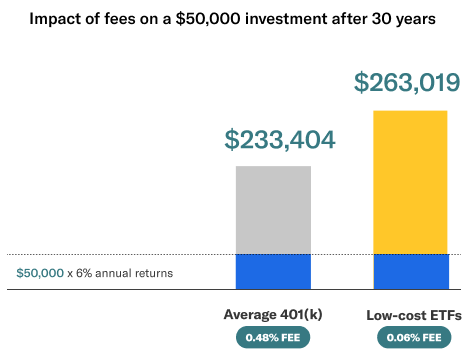Make saving for retirement easy with an IRA
Special tax benefits.
IRAs offer tax breaks to let your money grow and compound faster than it would in a taxable account.
Automated technology.
We make investing easy by putting it on autopilot, handling all the trading, rebalancing, and dividend reinvesting.
Retirement tools.
We build you a personalized plan, calculate how much to save, and adjust as life changes.

Pick from our tax-advantaged IRAs to meet your financial situation.
Have an old 401(k) or IRA? We can help roll them over easily.

Lower fees today can mean more money tomorrow.

Assumed 0.25% management fee with hypothetical 6% annual return. Image to illustrate the potential impact of fees on performance and does not reflect the performance of Betterment.
Get personalized advice on your retirement.
We offer hands-on guidance from our team of experts to help bring clarity and confidence to your retirement.
0.65% annual fee. Minimum balance required.

IRAs come with questions. We’re here with answers.
-
An IRA (individual retirement account) is a personal investment account the government created to help you save for retirement.
-
The difference mainly comes down to how and when you’re taxed. A Roth IRA might be a good choice if you expect your future tax rate to be higher. This is especially true when you're early in your career and anticipate earning more in the future. Paying taxes on your Roth contributions now can help you avoid a larger tax bill during retirement.
On the other hand, if you think your future taxes will be lower, a traditional IRA might be better. You also have an upfront tax deduction, which if you’re eligible, means more money to invest now. -
There are income limits to restrict high earners from contributing to a Roth IRA. However, you can use a "back door" conversion to move your money into a Roth IRA. We can help you make this Roth conversion to take advantage of tax-free growth.
-
A SEP IRA is a type of retirement plan for those who are self-employed or who are small business owners.
-
There is no minimum age requirement to open either a traditional or Roth IRA, but you must have earned income.
There are no income limits for a traditional IRA. However, when considering a Roth IRA, your income plays a role in determining your contribution eligibility.
In 2024, single tax filers aiming to contribute to a Roth IRA must have a modified adjusted gross income below $146,000.
If married and filing jointly, your joint modified adjusted gross income must be under $230,000 in 2024.
-
In 2024, the annual contribution limit for both Roth and traditional IRAs is $7,000 for those under 50, and $8,000 for those 50 and above.
You can still contribute to your 2023 traditional and Roth IRA up to $6,500 a year if you're under 50, or $7,500 if you're 50 or older until April 15, 2024.






